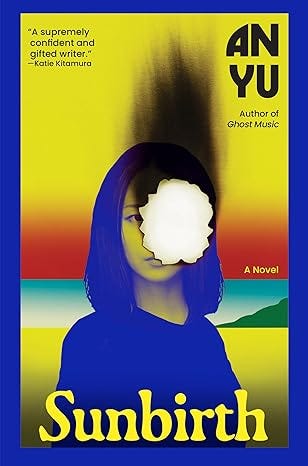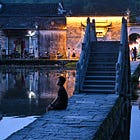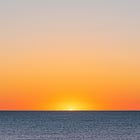Dystopian writers think the unthinkable
Is a work of speculative fiction like "Sunbirth," our August selection, the best way to get at the difficult truths of our time?
Ink Book Club members: Join us today, Wednesday, August 6, at 12:30 p.m. Eastern to discuss Sunbirth, by An Yu, our August selection. Even if you haven’t started reading yet, we invite you to weigh in as we discuss some of the ideas that have emerged from our posts around the book and talk about the place of speculative fiction. Tune in from your desktop at The Ink or from a phone or tablet with the Substack app. The Book Club is open to all supporting subscribers of The Ink.
Hey, everyone! We’ve loved reading your comments on some of the authors who may have paved the way for An Yu’s Sunbirth. You’ve told us how those artists have experimented with form as a means of breaking free from convention and built worlds that place their characters in futuristic or otherwise unreal scenarios to jolt readers into recognition in a way that realistic fiction cannot. But in doing that, they’ve gotten at bigger truths. These writers have often been canaries in the coal mine, Cassandras whose fiction eventually proved startlingly apt. No one can doubt that Margaret Atwood’s The Handmaid’s Tale, for one, seems eerily prescient. Noooo.
Ink Book club member Lynn Horsky cites Doris Lessing’s Canopus in Argos series in her comments, in which a civilization faces the “mass extinction of their planet.” This is, of course, the theme that underlies Sunbirth. Lessing, too, explored her characters’ ability — or inability — to step up to their existential challenge. In Lynn’s words: “The people’s adaptation or lack thereof during the transformation of the planet…is a profound metaphor for our collective spirit and interdependence with nature.” She sees Lessing’s hand in Yu’s work.
If you’ve started reading Sunbirth, you may have noticed that An Yu consistently pushes back against the linear in her novel, and that we don’t know where — or when — the story is meant to take place; We don’t know her protagonist’s name, or even its first letter. Is this rebellion?
Author Rachel Cusk has dismissed such expected norms as restraints. Cusk has said her intention in writing is to “destabilize”; imposing linear time or stable characters or forecasting a book’s length felt “unbelievably oppressive.” Ink Book Club member Susan Miville observes: “Cusk has no need for character or plot.” She believes “we’ve moved beyond such devices.”
But what is it we find when authors move beyond the expected? When they strip a novel of such niceties as chronology, clearly defined characters, plot, place, and time, what are we left with? And is this a quest, on the writer’s part? A deeper search for truth? What does it reveal?
Eager to hear what you all think at 12:30 p.m. Eastern today. And start thinking about what we’ll want to discuss with author An Yu when she joins us for a conversation on Wednesday, August 27, at 12:30 p.m. Eastern.
More on Sunbirth from The Ink Book Club:







